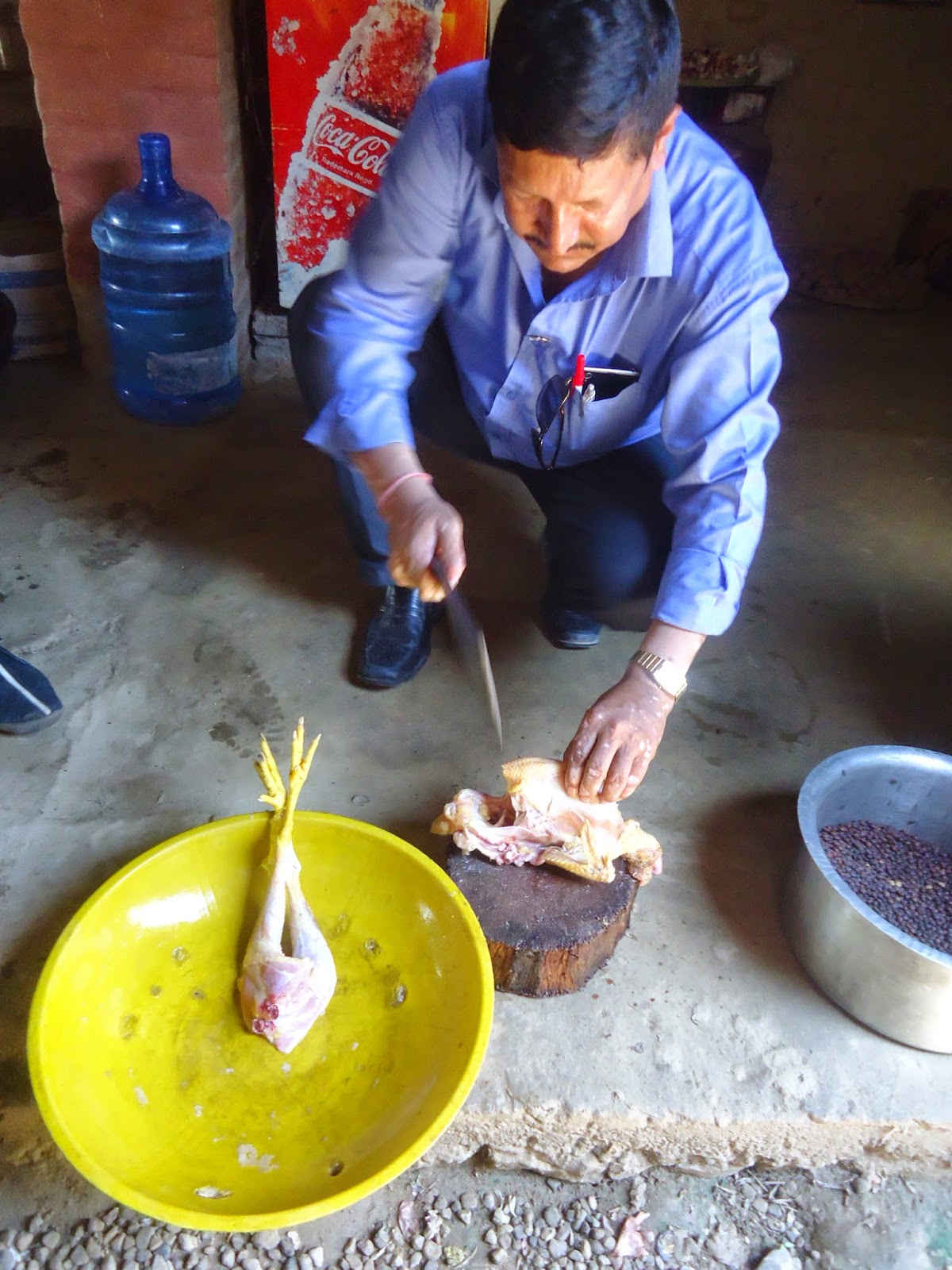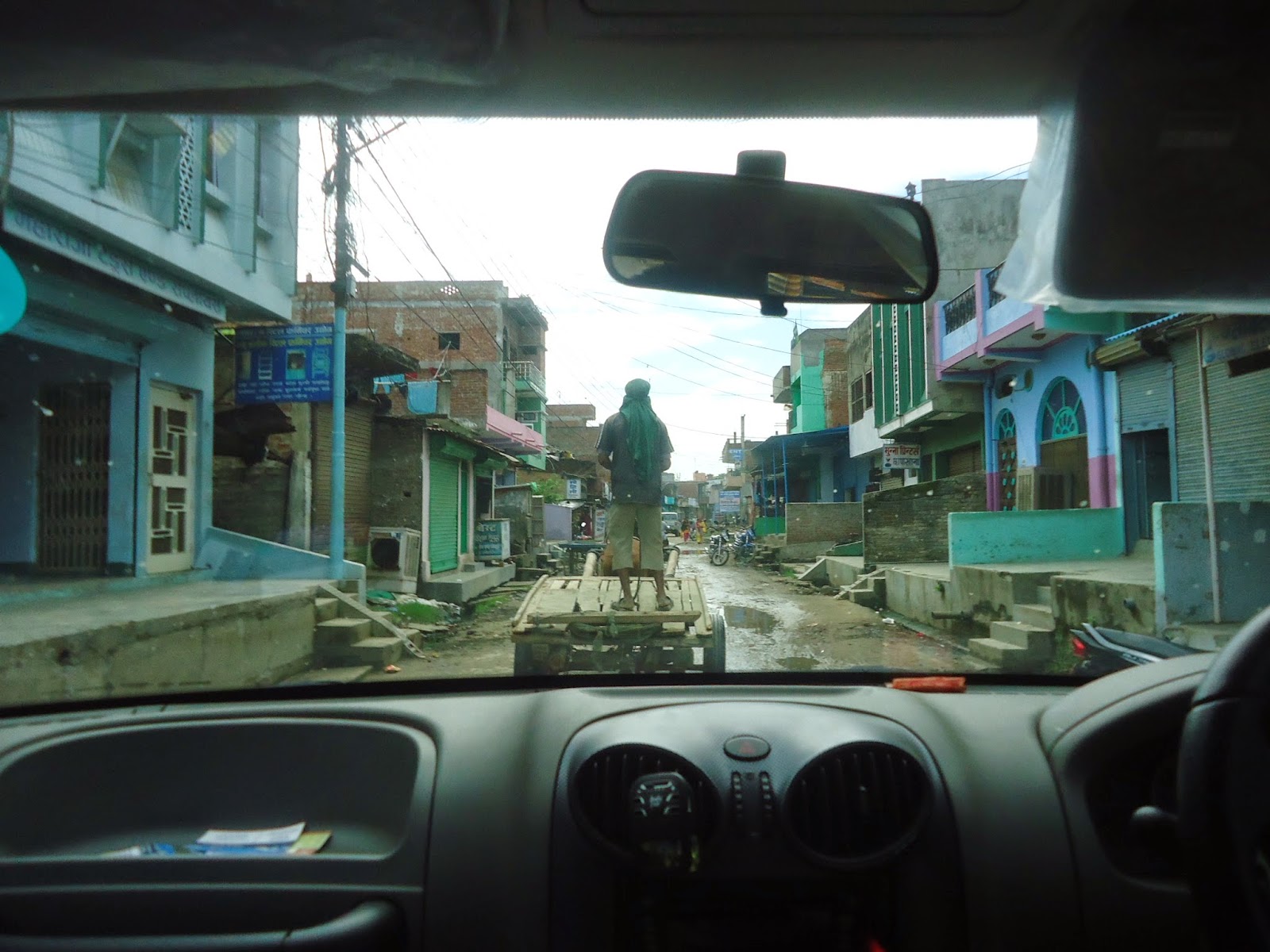In Nepalgunj we went to visit a farm that had had its water pumps
stolen by the Maoists years ago. The Maoists dismantled the equipment
and sold it to buy weapons. They also took copper wire from the
telephone lines to sell.
This water pump is similar to
the one that was demonstrated to us in Kailali. It is larger and can
water about 75 hectares of land. Since the pump has been gone, the
farmers have not been able to grow rice. Rice takes a lot of water -
more than the rain can provide in the Tarai. This is a huge problem
because The Tarai region is flat, so it's ideal for producing rice. It
is where the bulk of the country's rice is produced. Since farms have
not been very productive, farmers have become more poor, rice has had to
be imported, and consequently the cost of rice has increased. In order
to survive, farmers have been planting other things, but they have not
been as lucrative or sustainable as rice. The farmers here have been
asking for new water pumps for awhile. The government hasn't listened or
provided new equipment so CDRA has stepped in to take a look.
Speaking
of the government, I have been trying to figure out what's going on
with it. Most Nepalis don't seem to know and they don't seem to care
either. They say it is very corrupt and lazy. People pay taxes so they
stay out of their business, but otherwise the government does very
little. One of my friends here was saying he preferred having a king. He
said that even though the king wasn't great, it was better than the
nothing they have now. At least there was order. The government is a 600
party system. My friends were telling me that in the elections last
year, there were many parties to vote for, but none of them were any
better than the other. They said that no matter who you vote for, the
government would not change. They say this is why many young Nepalis are
trying to get out of Nepal.
 |
| Buffalo in the water |
 |
| Where the pump used to be |
 |
| Barren farmland due to lack of water. |
Anyways, in this region, there were a lot of Muslims. We drove past a mosque and I saw a few women in burqas.
 |
| Woman in a burqa and many bikes |
 |
| The road is being widened. The red numbers indicate how much of the building is to be chopped off (1.6 meters off the front here). The people won't be compensated for getting their homes pushed back because they're not supposed to build their homes so close to the road. |
 |
| Buying mangoes |
 |
| Ashok showing us how to properly cut up a chicken |
On the way back, we saw some people selling stuff on the side of the
road. There was some discussion in the car: "Photokich?" "yeah yeah" "ok
ok pull over."
In Nepali, "photo kichnu" means "to take a
photo." So, I thought everyone was saying, "let's take a photo!" I was
wondering what was so special about this situation. Why were they so
eager to take a photo on the side of the road? We bought a few bags of
mushrooms that the people on the side of the road were selling. I
dutifully took some photos of the transaction and the people.
"Libby, you know what these are?"
"Chocolate? Mushrooms?" (they were covered in mud so they looked chocolate-y)
"They
are special mushrooms. They only pop up after it rains. No one knows
why. Usually they're expensive in Kathmandu. Here they're cheap. They're
called putukis." (pootoo kees)
"Ohhhh those are putukis? I thought you were saying 'photo kich! photokich!!' which is why I took some pictures."
They thought that was hilarious. We stopped 2 more times and bought more bags of the mushrooms.
"Wow, so these mushrooms must be really good. Why are you buying so many?"
"Yeah
they're great! Here they're really cheap, and Ashok likes to help poor
kids." Ashok is full of charity. I thought that was really cool.
We
tasted some later that night. They're really stiff and crunchy. I
wasn't a huge fan. Someone said it was like a goat's ear. I thought it
was more like eating a goat's eyeball.
 |
| people selling putukis on the side of the road |
 |
| We bought 2 bag-fuls |
 |
| Bought these too |
 |
| Bull-drawn cart. Common in this area. |
 |
| Super rainy. Crossing a river that doesn't really have a bridge. |